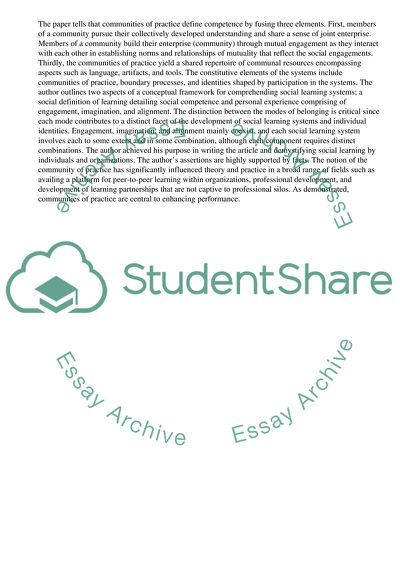Cite this document
(“Communities of Practice and Social Learning Systems Essay”, n.d.)
Communities of Practice and Social Learning Systems Essay. Retrieved from https://studentshare.org/management/1604551-individual-report-communities-of-practice-and-social-learning-systems
Communities of Practice and Social Learning Systems Essay. Retrieved from https://studentshare.org/management/1604551-individual-report-communities-of-practice-and-social-learning-systems
(Communities of Practice and Social Learning Systems Essay)
Communities of Practice and Social Learning Systems Essay. https://studentshare.org/management/1604551-individual-report-communities-of-practice-and-social-learning-systems.
Communities of Practice and Social Learning Systems Essay. https://studentshare.org/management/1604551-individual-report-communities-of-practice-and-social-learning-systems.
“Communities of Practice and Social Learning Systems Essay”, n.d. https://studentshare.org/management/1604551-individual-report-communities-of-practice-and-social-learning-systems.


